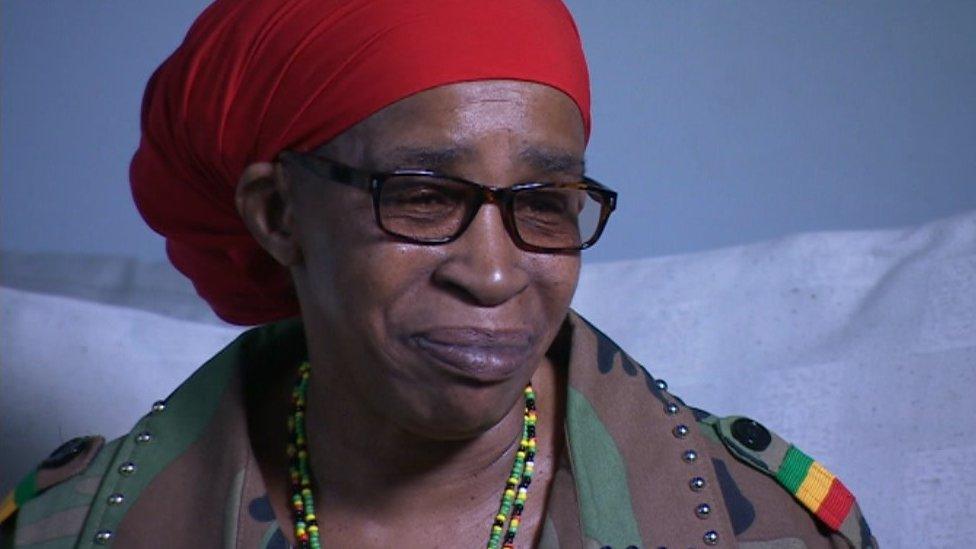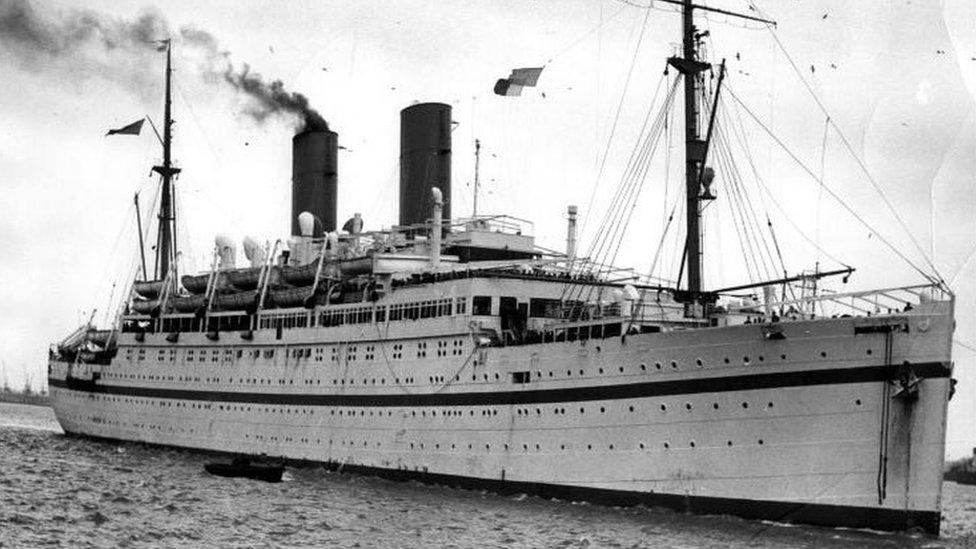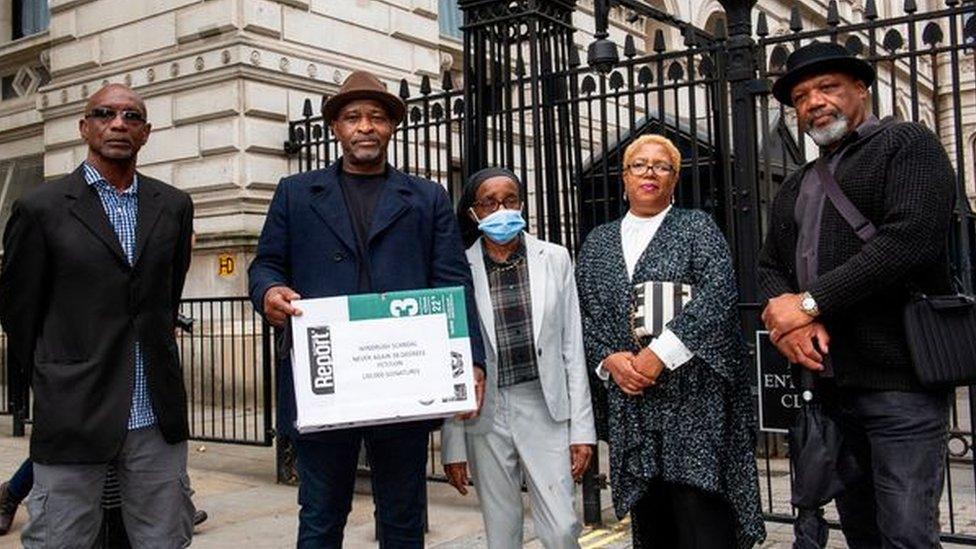Windrush scandal: Inquiry launched into compensation scheme
- Published

An inquiry is being launched into the compensation scheme set up for victims of the Windrush scandal.
The BBC found several victims had died before receiving compensation.
The scandal saw some British citizens with Caribbean backgrounds deported or threatened with deportation, despite having the right to live in the UK.
Yvette Cooper, chair of the home affairs committee, said MPs were "deeply concerned" about problems with the scheme.
She added: "It is immensely important that the huge injustices experienced by the Windrush generation at the hands of the UK Home Office are not compounded by problems in the compensation scheme that was supposed to right those wrongs."
Official figures published in October show that around 12% of Windrush victims claiming compensation have received payouts.
At least nine people have died before receiving compensation..

Paulette Wilson, from Wolverhampton, died aged 64 without receiving her compensation
Home Office data shows 71 claims have been made for people who have already died, but so far only three have resulted in payments.
Last year, the most senior black member of Home Office staff working on the compensation scheme resigned.
She told the Guardian , externalthe scheme was systemically racist and unfit for purpose.
"The results speak for themselves: the sluggishness of getting money to people, the unwillingness to provide information and guidance that ordinary people can understand," said Alexandra Ankrah, a former barrister who was the scheme's head of policy.

Who are the Windrush generation?

People arriving in the UK between 1948 and 1971 from Caribbean countries have been labelled the Windrush generation.
It refers to the ship MV Empire Windrush, which docked in Tilbury on 22 June 1948, bringing workers from Jamaica, Trinidad and Tobago and other islands to help fill post-war UK labour shortages.
The ship carried 492 passengers - many of them children.
It is unclear how many people belong to the Windrush generation, but they are thought to be in their thousands.
They are among more than 500,000 UK residents who were born in a Commonwealth country and arrived before 1971, according to University of Oxford estimates.
The influx ended with the 1971 Immigration Act, when Commonwealth citizens already living in the UK were given indefinite leave to remain.
After this, a British passport holder born overseas could only settle in the UK with both a work permit and proof of a parent or grandparent being born in the UK.

A Home Office spokesman, who said he could not comment on staffing issues, said the department took "any allegations of racism very seriously" and "any accusation is thoroughly investigated".
"We reject any suggestion that the Windrush compensation scheme is discriminatory or that it does not support victims," he added. "The scheme is more inclusive and open than any other compensation scheme in the UK."
By the end of September, 196 people had received compensation from the scheme, amounting to over £1.6m in compensation.
The fund has an estimated budget of at least £200m.
- Published2 November 2020

- Published4 November 2020

- Published4 September 2020
